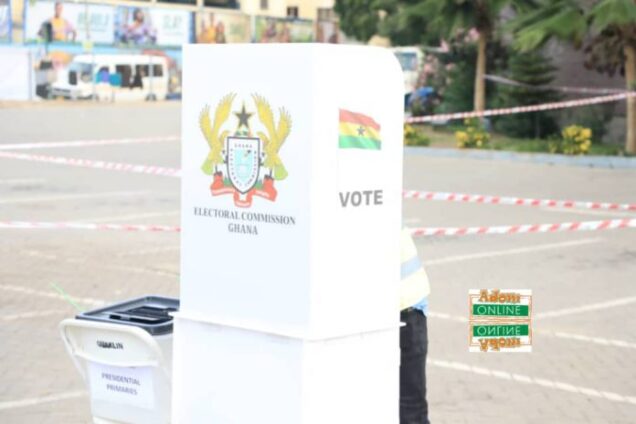
Audio By Carbonatix
As Ghana approaches the December 7th election, one group of citizens remains overlooked: the students studying abroad. In the past five years, the number of Ghanaian students going to study in countries like Canada, the United States, the United Kingdom, and Australia has more than quadrupled, reaching 17,000, which can be an entire constituency in Ghana. Many of these students spend one or two years abroad, developing themselves academically, professionally, and personally.
However, despite their dedication and plans to return and help grow the country, they are not able to participate in the elections that will shape the future of the nation they will soon return to. One major reason for this is the lack of systems that would allow them to vote remotely, such as through postal or online voting.
The current system mandates physical presence at polling stations within Ghana, a challenge for international students who are far from home. While one might suggest proxy voting, many students could not arrange for it in time due to the uncertainty surrounding visa approvals. Moreover, proxy voting has been widely criticized for its potential for abuse and manipulation.
Although the Representation of the People Amendment Act (ROPAA) was passed in 2006 to allow citizens abroad to register and vote, there has been no progress in implementing the law, raising concerns about the extent to which Ghanaian students studying abroad will be considered in the upcoming elections.
This year, students from the U.S., Georgia, and Switzerland studying in the U.K. were able to vote remotely. U.S. students, for instance, voted using absentee ballots through the Federal Voting Assistance Program (FVAP) in the November 5th elections.
Georgian students cast their votes at the Georgian Embassy in London during the parliamentary elections on October 26th, 2024. Meanwhile, Swiss students participated in the November 24th elections by receiving postal ballots from their municipality after registering with the Swiss Embassy.
As technology continues to connect the world, the question arises: why should the political participation of Ghanaians abroad be limited by geographical barriers? Many countries have adopted systems that enable their citizens living overseas to vote through absentee ballots, remote platforms or at embassies.

Ghana, with its technological potential, should follow suit and implement similar systems to allow Ghanaian students abroad to vote securely and conveniently. Such reforms would ensure that the voices of students who will soon return to their home country are heard in the decisions that shape the nation’s future.
More importantly, it would be a significant step in enhancing Ghana's democracy. It would foster a greater sense of civic duty and patriotism among students abroad, encouraging them to remain actively engaged in the politics of their home country.
The author, Elizabeth Dansoa Osei is a Graduate Student at the University of Oxford.
Latest Stories
-
Ghana is rising again – Mahama declares
5 hours -
Firefighters subdue blaze at Accra’s Tudu, officials warn of busy fire season ahead
5 hours -
New Year’s Luv FM Family Party in the park ends in grand style at Rattray park
5 hours -
Mahama targets digital schools, universal healthcare, and food self-sufficiency in 2026
5 hours -
Ghana’s global image boosted by our world-acclaimed reset agenda – Mahama
6 hours -
Full text: Mahama’s New Year message to the nation
6 hours -
The foundation is laid; now we accelerate and expand in 2026 – Mahama
6 hours -
There is no NPP, CPP nor NDC Ghana, only one Ghana – Mahama
6 hours -
Eduwatch praises education financing gains but warns delays, teacher gaps could derail reforms
6 hours -
Kusaal Wikimedians take local language online in 14-day digital campaign
7 hours -
Stop interfering in each other’s roles – Bole-Bamboi MP appeals to traditional rulers for peace
7 hours -
Playback: President Mahama addresses the nation in New Year message
8 hours -
Industrial and Commercial Workers’ Union call for strong work ethics, economic participation in 2026 new year message
10 hours -
Crossover Joy: Churches in Ghana welcome 2026 with fire and faith
10 hours -
Traffic chaos on Accra–Kumasi Highway leaves hundreds stranded as diversions gridlock
10 hours

